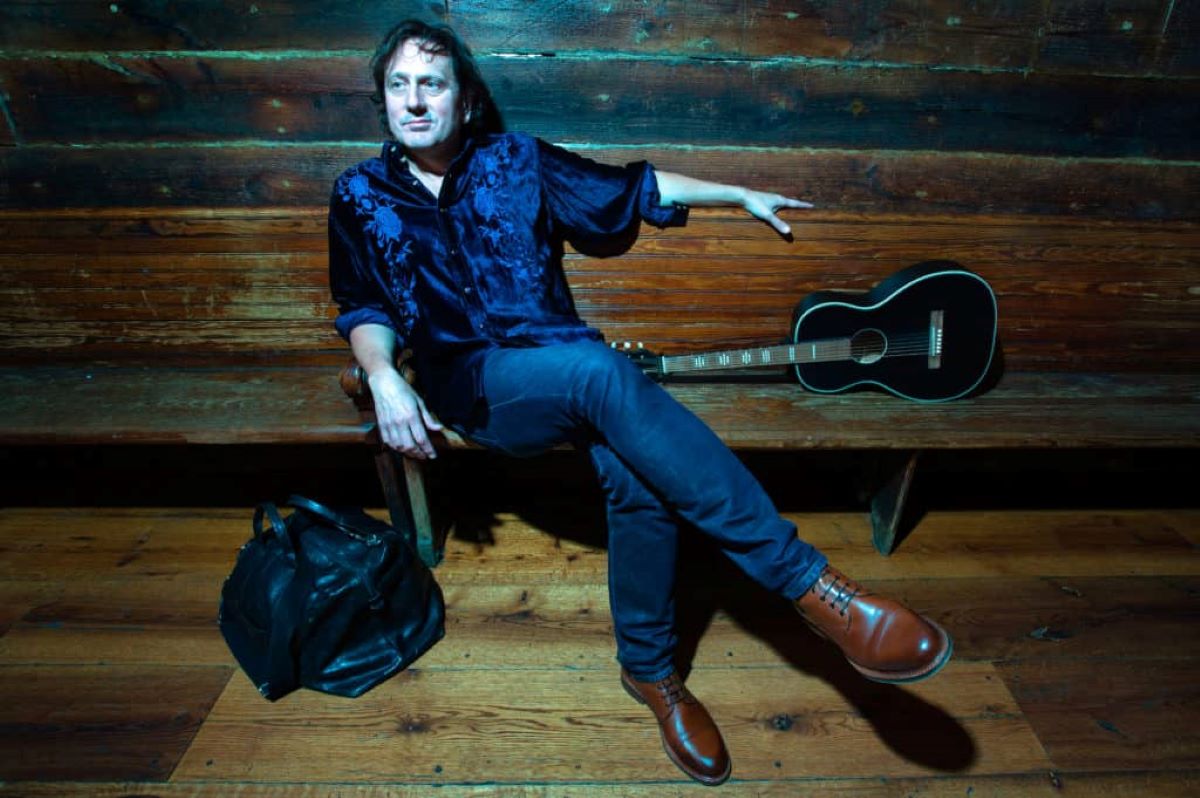
Tell us about your tour vehicle.
One time, after playing two gigs in LA the night before, we drove to a show in Vegas the next morning… in our bass player Clint’s family minivan. It’s hard to look Rock ‘n’ Roll when you’re rolling up to the Hard Rock in the Family Truckster!
How do you eat cheaply and/or healthy while on tour?
The best advice I’ve received for staying healthy on the road was from Eric Ambel—-“drink one glass of water for every beer you drink.”
How many strings do you break in a typical year? How much does it cost to replace them?
As the worst guitar player in the Surreal McCoys (or any band), I don’t play onstage much if ever, so I have no strings to break! As the lead singer, I also don’t have amps or drums to carry, but I’m now much better about pitching in on roadie work.
Where do you rehearse?
The Surreal McCoys live in five different cities so we don’t have a set rehearsal space. But my favorite place to make music is our producer Eric Ambel’s Cowboy Technical Studios in Greenpoint Brooklyn. It’s my happy place.
What was the title and a sample lyric from the first song that you wrote?
The song was “Oskar Kokoshka” which I wrote when I was 23.
Sample lyric:
“Hey sunflower, why’d you go and leave me like this?
Pleading like a fool to some abstract expressionist….
Now I’m so blue I could pass for a base on a litmus test.”
Describe your first gig.
The first gig with The Surreal McCoys was at Club 23 in South Bend, IN when we were all still in school. We packed the place with friends and it was exhilarating and hot and sweaty. We’d placed velvet Elvis paintings all over the stage and gave out jelly donuts to the audience for maximum campy effect. The set was drunken and went on too long, but ended abruptly when a drumstick flew out of our drummer Shawn’s hand and shattered a shelf of beer mugs behind the bar.
What was your last day job? What was your favorite day job?
My current day job is as a self-employed lobbyist, which pays the bills for the night job, and enables me to make music. The goal for all musicians is for the night job to become the day job, right?!
How has your music-related income changed over the past 5-10 years? What do you expect it to look like 5-10 years from now?
It has grown somewhat because of digital distribution (particularly satellite radio airplay) and synch licenses, so it’s not just live gig money anymore. Hopefully that trend will continue for the next 5-10 years, but I’m definitely not quitting my day job anytime soon!
What one thing do you know now that you had wished you knew when you started your career in music?
That I should start recording albums earlier.
